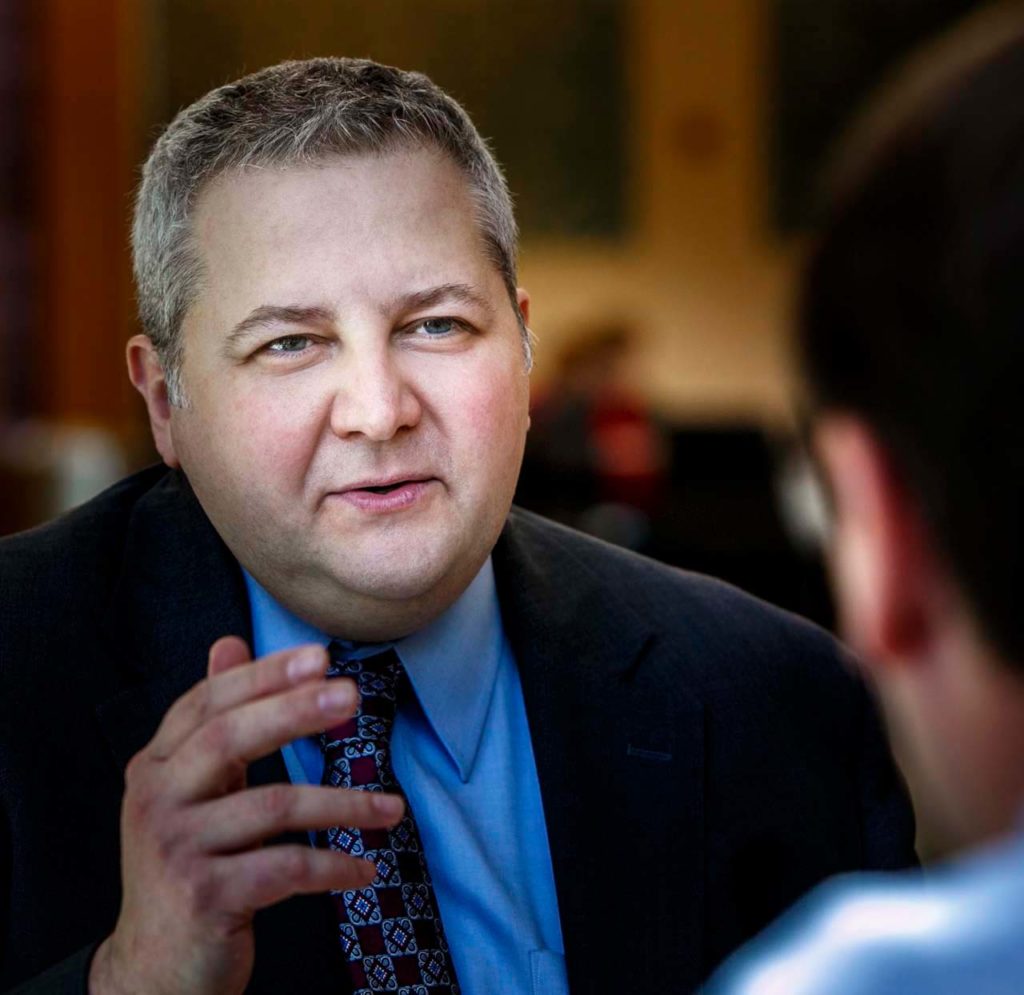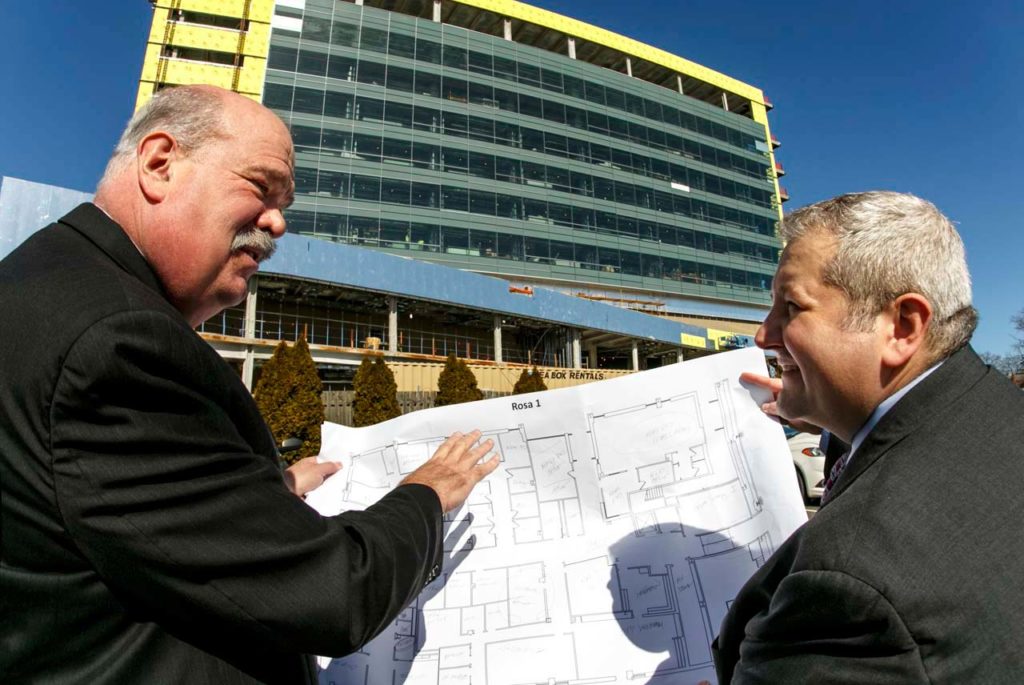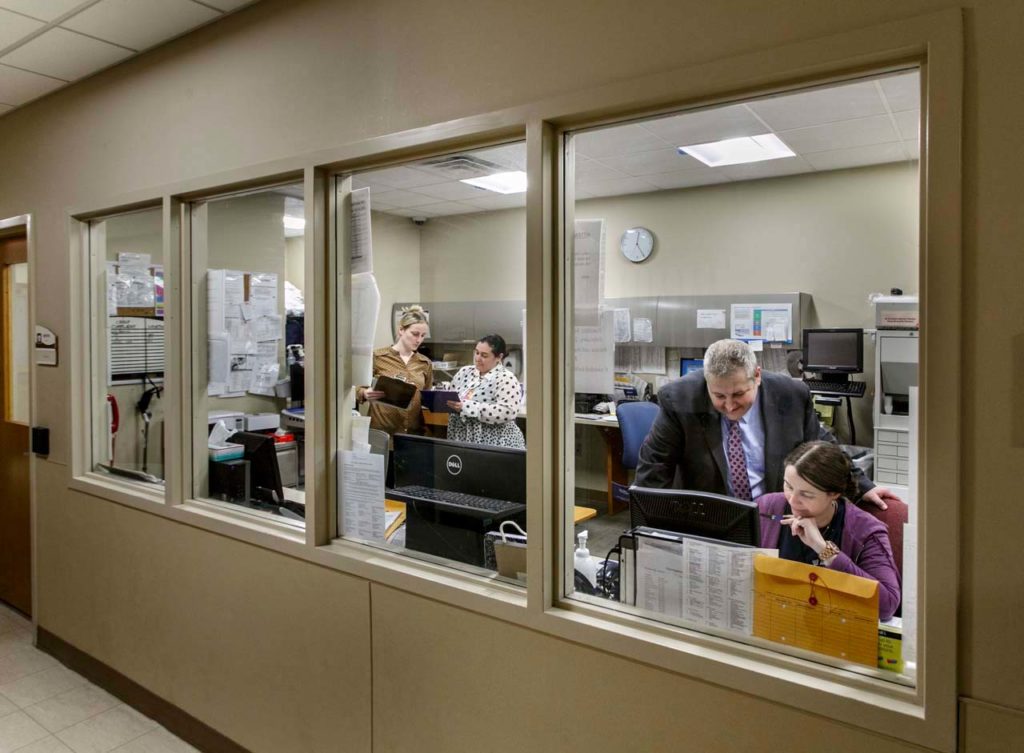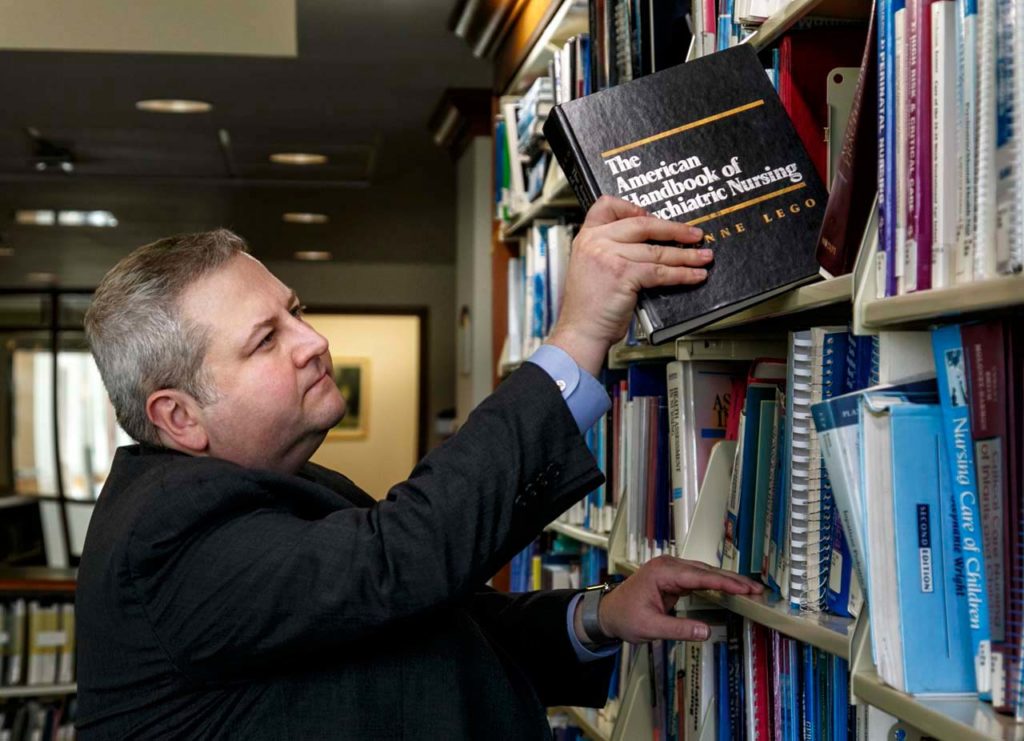Hackensack Meridian Health’s Behavioral HealthCare Transformation Services are focused on providing treatment and intervention for addicts and their families
by Jessica Jones Gorman • Photos By Amessé Photography
In the early 1990s, when Dr. Ramon Solhkhah was undertaking his surgical residency at Lincoln Medical and Mental Health Center in the Bronx, he witnessed firsthand the devastation and destruction caused by drugs and addiction.

“It was at the tail end of the nation’s crack epidemic, and on a daily basis patients were being wheeled into the ER with needles in their arms or gunshot wounds in their chests,” Dr. Solhkhah said. “It was horrific on every level, but what struck me most was how many of these patients were teens. They were basically children, dying or near death because they had gotten under the grip of this drug.”
His experience at Lincoln Medical caused Solhkhah to fundamentally rethink his career. “Going through medical school, I was always interested in treating kids and teens,” he said, “but after working with so many drug-addicted teens and young adults, I decided to make a big pivot and pursue a specialty in psychiatry. I felt that if I could change the path for some of these kids, help them make small changes in their lives, I could help them have a better end result.”
So, Dr. Solhkhah completed a residency in psychiatry at Mount Sinai Medical Center and a child psychiatry fellowship at Harvard University/Massachusetts General Hospital. Next was an addiction psychiatry fellowship at Bellevue Hospital/New York University School of Medicine and then a position at St. Luke’s-Roosevelt Hospital Center, where he became vice chair of the department of psychiatry. In 2009, he moved to Maimonides Medical Center to be vice chair for education, and then in 2010 was recruited by what was then Meridian Health. He currently chairs the department of psychiatry at Jersey Shore University Medical Center and is Hackensack Meridian’s corporate medical director of behavioral health services for Ocean, Monmouth, and Middlesex counties.
“I came to Hackensack Meridian because this is a forward thinking health network with multiple hospitals that impact a significant number of patients,” Solhkhah said. “Psychiatry is so underserved; there are just not enough doctors in each county to provide all of the clinical work. But with Hackensack Meridian’s structure and system, we are able to extend our staff and serve more patients. We make use of primary care physicians and pediatricians, while I serve as consultant. It’s a much more efficient way to deliver care.”

The doctor describes Hackensack Meridian’s behavioral health services as a hub-and-spoke model: Each network hospital in Ocean, Monmouth, and Middlesex counties has an ER equipped for psychiatric emergencies; more complex cases are referred to the system’s three core facilities—Jersey Shore University Medical Center, Riverview Medical Center, and Raritan Bay Medical Center—all of which have an inpatient psychiatric unit. There is also a network of outpatient services across all specialties and a range of other addiction services.
“I think one of the most exciting things we’re working on now is a psychiatric residency program,” said Solhkhah. “Previously we’ve partnered with Rutgers, but now we will begin a program right here at Hackensack Meridian, building on the new school of medicine we’re forming with Seton Hall. The two residencies should be up and running by 2018.”
Because of the state’s growing opiate epidemic, Hackensack Meridian is also focused on providing treatment and intervention to addicts and their families. “The drug epidemic is somewhat anchored in Ocean and Monmouth counties, and it’s impacting the community as a whole,” Solhkhah said. “I think part of the reason we’re at the epicenter is because of Superstorm Sandy. It wrought so much destruction in this community, causing many people to turn to medication to deal with physical pain and many others to self-medicate to deal with the psychological pain.”

But Solhkhah says there are treatments being devised. “At Jersey Shore, we’ve built up a strong research component to our addiction treatment,” he said. “And I think there is a bright future ahead in terms of clinical research. Right now, if you’re a cancer patient, you can enroll in a clinical trial, where doctors are working to solve your particular illness. And that’s part of what I’d like to see over the next decade for mental health: clinical research taking a deeper look at medicines that can help with our addiction crisis.”
Studies are already in progress, he added. Doctors are currently working with buprenorphine, for example, an opioid re-placement that can help wean patients off prescription drugs or heroin. There is also research being done with naltrexone, an opiate blocker that helps prevent drug and alcohol relapses.
“These drugs are the two cornerstones of treatment,” Solhkhah said. “To see our governor and our health system here in New Jersey putting resources behind finding a solution—it just proves there is a positive future ahead.”

And Solhkhah believes treatment options will continue to grow. “Psychiatry is currently where internal medicine was 20 years ago,” he explained. “It was only about two decades ago that something like a peptic ulcer was a serious health issue with all types of complications that required surgery. But now it’s easily treated with medication. I think mental health is at that same type of forefront. Medicine and discovery of treatment will help us break free from this epidemic. And for many who are now suffering from addiction, there will be some dramatic changes and a wonderful end result.”
Hackensack Meridian Health
1 Bay Ave, Montclair, / 844.HMH.Well (844.464.9355)
hackensackmeridianhealth.org


